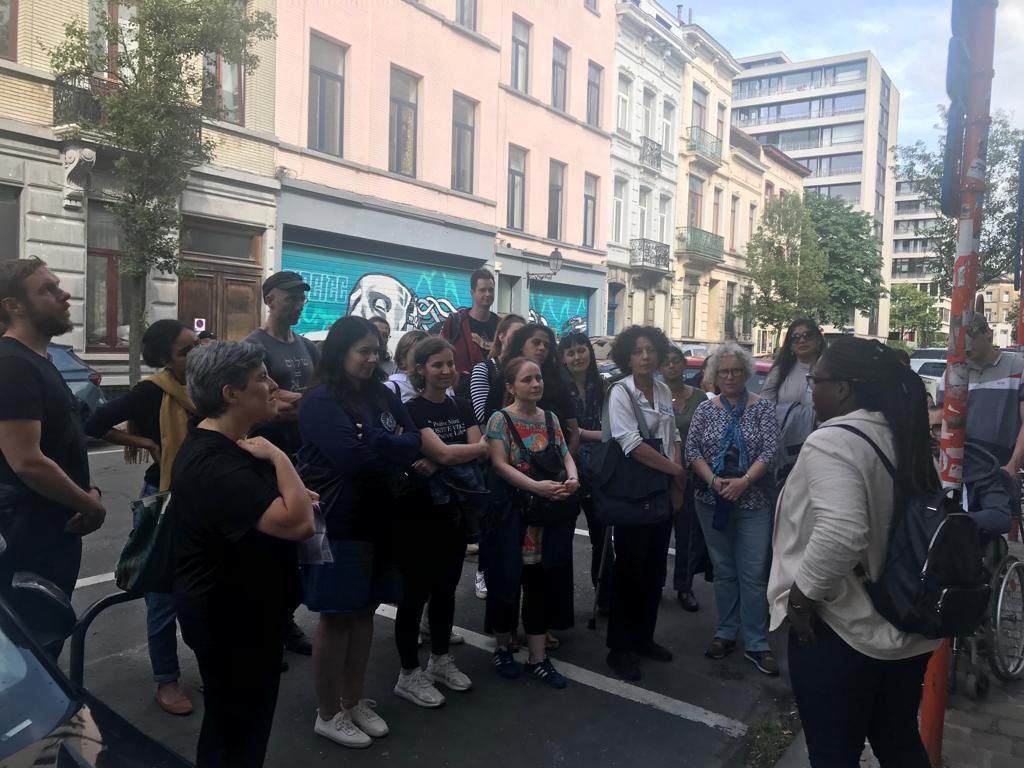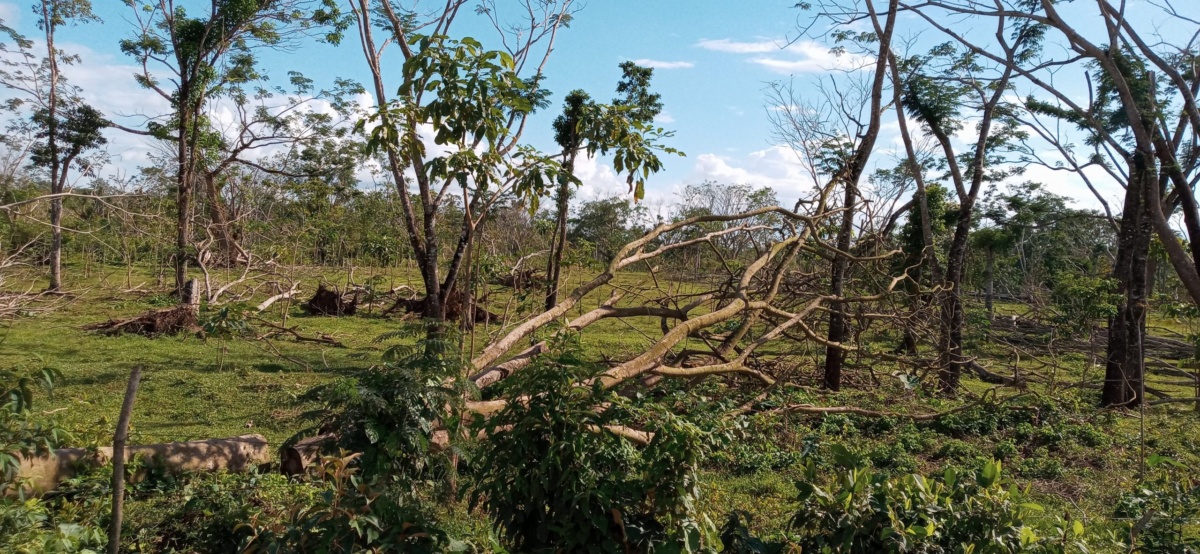This post was originally published on the Undisciplined Environments blog. You can read the full text here.
In the midst of growing hunger from colonial academia we reflect on the need to right our relationships with the Indigenous and other racialized peoples with whom we work in Nicaragua.
Stories that tell stories
“I cannot sign anything that would permit extractive research”, a Nicaraguan Miskitu scholar- activist told us in response to our request for consent to use the information he shared and demanded a commitment to right relations. “I have given you not just my words, my analysis, my history and my experience, but that of the Miskitu communities I walk with. What do you offer us in return?” He needed a guarantee that we were not “extracting knowledge like others extracting timber and land from Miskitu communities.”

Forest restoration in an Indigenous territory in Nicaragua. Source: JUSTCLIME Nicaraguan research team.
After he spoke, seconds passed, seconds that felt like forever. We replied in our own way about our individual and institutional practices, highlighting our broader commitments to co-research, resource sharing, and non-extraction with other Indigenous and marginalised communities. We closed proposing a second meeting to discuss what the project itself and the Nicaraguan-based institution could offer in return.
His words called for a reckoning with past wrongs, as well as future accountability. Were we attempting to distance “ourselves” from “those who extract” by trying to justify our research and publishing choices? Given our long-standing commitments to social justice processes linked to women’s and peasant movements in Central America, were we glossing over the ways in which each of us had subordinated critical race and decolonial concerns to questions of gender and/or class? We had not a priori selected Indigenous territories as research sites. Rather, our focus on socionatural conflict and climate change led us to draw upon pre-existing relationships with Miskitu, Mayangna and Rama-Kriol professionals and activists. The question our respondent posed forced us to consider the implications of these choices in a new way.
Despite our individual efforts to do non-extractive research, until that moment we had not taken a collective position on how to decolonize ourselves and our research praxis. To keep our promise, we first needed to collectively name, unravel and address the tensions and entanglements that gesturing towards a decolonial – non extractive research praxis means.
Tensions and entanglements with the extraction-assimilation system
Re/produced through mutually constitutive capitalist, colonial and patriarchal relations, the extraction-assimilation system wrecks relationships with and reaps resources from Indigenous and racialized peoples. As Leanne Betasamosake Simpson (Mississauga Nishnaabeg) explains, “colonialism and capitalism are based on extracting and assimilating […] when people extract things, they’re taking and they’re running and they’re using it for just their own good.” Extractive research takes whatever teachings that are useful to knowledge holders out of their context, out of their language, thus “integrat[ing] them into this assimilatory mindset”. The act of extraction absolves those who take what is not theirs of responsibility and “removes all of the relationships that give whatever is being extracted meaning”.
In order to avoid “taking and running”, three tensions embedded in overlapping hierarchies of power and difference came into relief: (i) between the funding-based demands for written production linked to the colonial and extractive underpinnings of the academia on the one hand, and Indigenous territorial priorities on the other; (ii) between the Nicaraguan development institution we were collaborating with, and our personal commitments to gesturing towards decolonial practice; and (iii) between our desire to decolonize ourselves as researchers and our entanglement with Westernized research institutions that require claiming ownership over the production of knowledge. Layers of precarity intertwine making extraction-assimilation the default system in research: the precarities we as emerging researchers navigate, those of the underfunded and under political threat Nicaraguan institution, of our research efforts in pandemic times, and most importantly the precarities (read violence) faced by those in the Indigenous territories themselves.
Continue reading the full text here.





